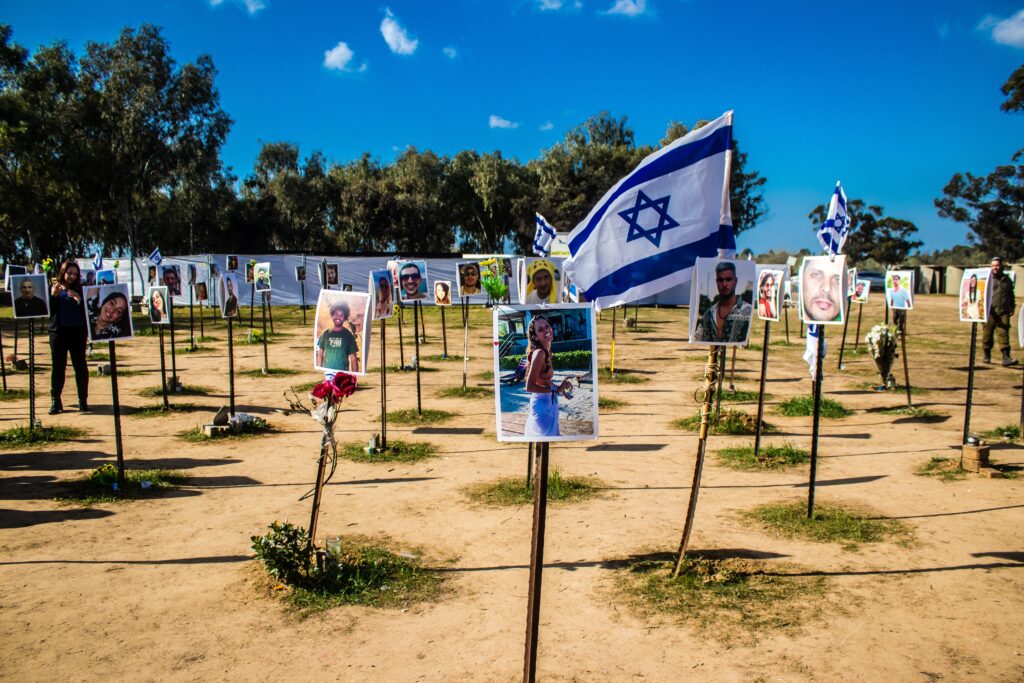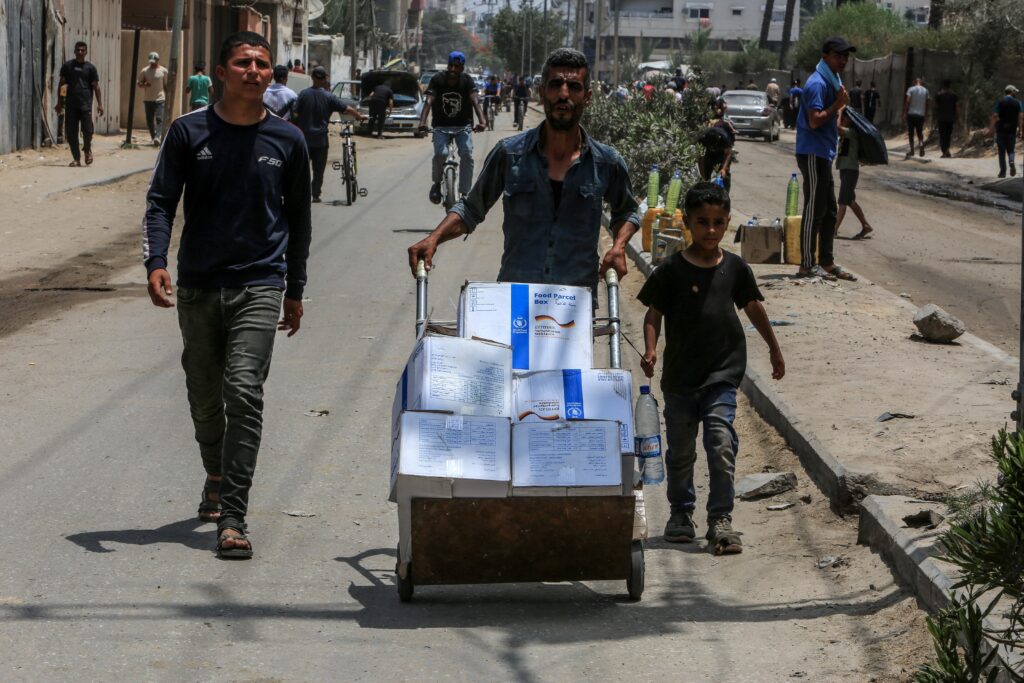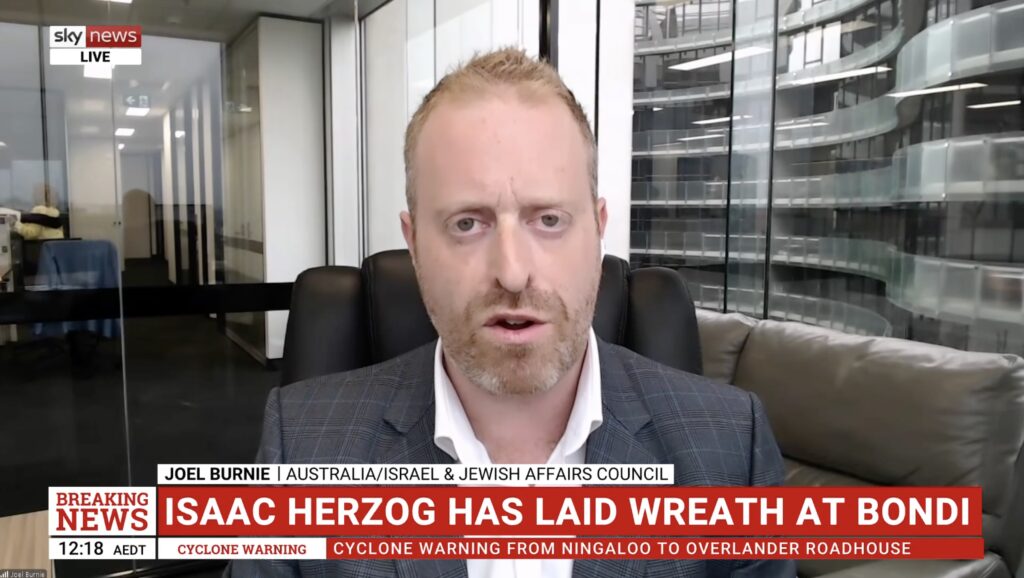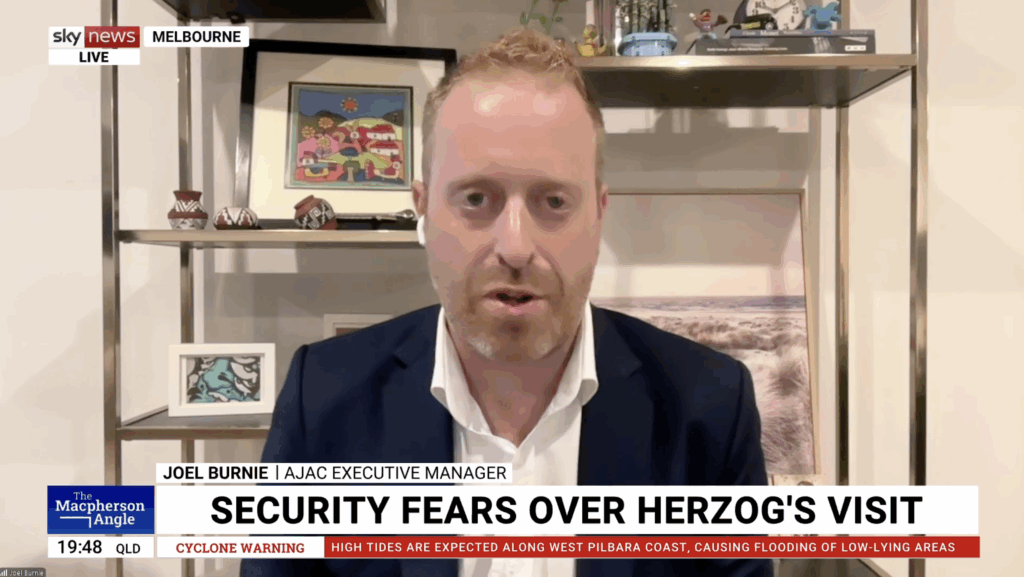IN THE MEDIA
‘The worst two years’: Israeli lives remain entangled with grief and hope
October 8, 2025 | Ran Porat

It is two years since hundreds of Hamas terrorists, accompanied by members of other armed Palestinian groups, attacked kibbutzim, towns and cities across southern Israel near the Gaza Strip. According to eyewitness accounts and the painstaking work of investigators, the infiltrators murdered and raped partygoers at the Nova Festival, killed entire families in their homes — children in front of their parents and parents in front of their children. The attackers even filmed themselves during their rampage through these communities. They took more than 250 Israeli residents as hostages, some of whom were later paraded through the streets of Gaza as trophies.
Much of the world has since moved on from the events of that terrible day, focusing attention instead on the high death toll and widespread destruction in Gaza following Israel’s invasion of the Gaza Strip. But Israelis remain trapped in a psychological time loop, a kind of “Groundhog Day” of horror, reliving the nightmare of that black Sabbath on the holiday of Simchat Torah.
It is not so much that Israelis are unwilling to move on with their lives — it is, rather, that the scars of 7 October 2023 continue to shape their existence.
Once the war began, hundreds of thousands of Israeli residents were forced to evacuate their homes near Gaza in the south, along the northern border with Lebanon, and in other parts of the country, taking refuge in hotels and temporary accommodations. They are now gradually returning to homes which, in many cases, are damaged or uninhabitable after being targeted by drones, rockets and missiles fired from Gaza, Lebanon, Iraq Iran, and Yemen.
Since 7 October, Israeli children have practiced running to shelters or fortified rooms. Their education has included having to learn about explosions, loss, grief and fear. After two years of online homeschooling during the COVID-19 pandemic and further disruptions because of war, Israeli schoolyards are once again filled with the voices of children.
People go to work, entertainment performances have resumed, restaurants are buzzing, life goes on — and yet nothing is the same. The events of 7 October and the war that ensued have fundamentally altered the Israeli experience. The society remains in a prolonged state of trauma even as it continues to function.
The implications of the war are inescapable. Courageous men and women serve between 200 and 300 days of military reserve duty in the Israeli Defence Forces (IDF), many of them in combat roles. These are fathers and mothers absent from home for weeks. When they return, many cannot shake the shock and pain that followed them home. The sights and memories of death have left deep scars on their souls.
My relatives and friends speak with anguish about losing both their sense of safety and their trust in the army that failed to protect Israelis on 7 October. Over the past two years, the IDF have regained much of their reputation as a strong and professional military. Indeed, the Middle East now poses a lesser threat overall to Israel: Hamas has been severely weakened (though not entirely defeated) in Gaza; Hezbollah in Lebanon is diminished and may soon be disarmed; and the brief 12-day war with Iran dramatically reduced Tehran’s nuclear and ballistic capabilities. Yet the disappointment over the army’s absence and failures on 7 October lingers.
Many Israelis have also lost faith in the Netanyahu government and the public remains deeply divided politically — a division that began months before the Hamas attack amid the controversy surrounding the proposed judicial overhaul.
Adding to the pain is the resurgence of antisemitism across the globe, including in Australia. For Israelis, this wave of hostility represents a sense of betrayal and abandonment of the victims of 7 October. I am often asked by Israeli relatives and friends whether I feel safe in Australia as an Israeli Jew, and they tell me that perhaps my family should return to Israel — “the only safe place for Jews after the Holocaust”.
At the same time, Israelis fully understand that the anger and protests on city streets around the world are fuelled by the horrifying images emerging from Gaza as a result of Israel’s military campaign. The sheer number of casualties — over 65,000, according to the Gaza health ministry — and the immense suffering of Palestinians who have been displaced while Gaza’s cities lie in ruins are not lost on Israelis. The longing for peace, instilled in Israelis from a young age, has not disappeared. Yet there is widespread pessimism about the prospect of Palestinians being a genuine partner for peace.
The darkest cloud on the horizon remains the fate of the hostages still being held in Gaza — which currently stand at 48, with only about 20 believed to be alive. Sadness lives within the heart of every Israeli which they will not let go until all the hostages are home, one prominent Israeli observer remarked. For months, thousands of Israelis have gathered weekly in Tel Aviv’s theatre square, renamed the “Hostages’ Square”. They call, plead and beg the Israeli government, US President Donald Trump, Arab states and even Hamas to allow their loved ones to return to Israel — so that they can either begin the long process of rehabilitation and recovery, or be buried with dignity.
Adding to this grief, 1,152 Israeli soldiers have lost their lives since 7 October — 42 per cent of them younger than 21, adding 6,500 members to the sorrowful community of bereaved families: widows, parents and siblings. Another 978 civilians have been killed, including 62 children.
80,000 Israelis have been recognised as victims of terror and warfare over the past two years, 40 per cent of them due to psychological trauma. The main mental-health support line in Israel has registered more than 637,000 calls for assistancesince the war began, including a 250 per cent increase in reports of loneliness and interpersonal distress.
“It’s the worst two years in Israel’s history”, summed up one of my relatives, who has lived through every war since the state’s founding in 1948. My 80-year-old mother says that these days, when she swims, she makes sure to stay close to the edge of the pool so that she can quickly get out if something happens.
Despite all this, Israelis remain extraordinarily resilient. A friend beautifully described the scene of a makeshift memorial for 7 October and the war’s victims near the fountain in central Tel Aviv, where laughter and grief coexisted side by side.
This duality is also reflected in Israeli culture. In 2025, Israelis chose as their top song for the Jewish New Year an upbeat Hasidic-style prayer song by Sasson Ifram Shaulov, with a chorus that praises God and declares, “It will always be well, and it will be even better” — repeating the phrase “even better” several times.
The song ranked third, “Superman” by Idan Amedi, offers a stark contrast. Amedi — a famous actor known for his role in the Netflix series Fauda as an undercover agent fighting terrorism among Palestinians, and himself a combat soldier severely injured in an incident in Gaza that saw several of his unit mates killed — sings candidly about trauma, bargaining with God and confessing, “I no longer fear death; I fear not living anymore”.
Now, there appears to be a light at the end of the tunnel for Israelis and Palestinians alike — the possibility that an end to the suffering is near. The latest Trump peace plan offers a glimmer of hope. A ceasefire would not constitute the “Total Victory” promised by Prime Minister Benjamin Netanyahu; the reality is far more complex. Hamas may retain some of its capabilities, and Israel will have to release thousands of Palestinian prisoners, including some who participated in the 7 October atrocities. Yet but the plan is closer to fulfilling the Israeli war aims than anything previously proposed.
As with previous ceasefire agreements, Israelis overwhelmingly support such an arrangement if it means ending the war and bringing the hostages home. Perhaps this moment could turn the page of history and allow all sides to begin healing. The most realistic hope may not be lasting peace, but rather a future of stability — one in which the painful lessons of war are remembered and applied, until, after years or even decades, real peace again becomes a realistic possibility.





